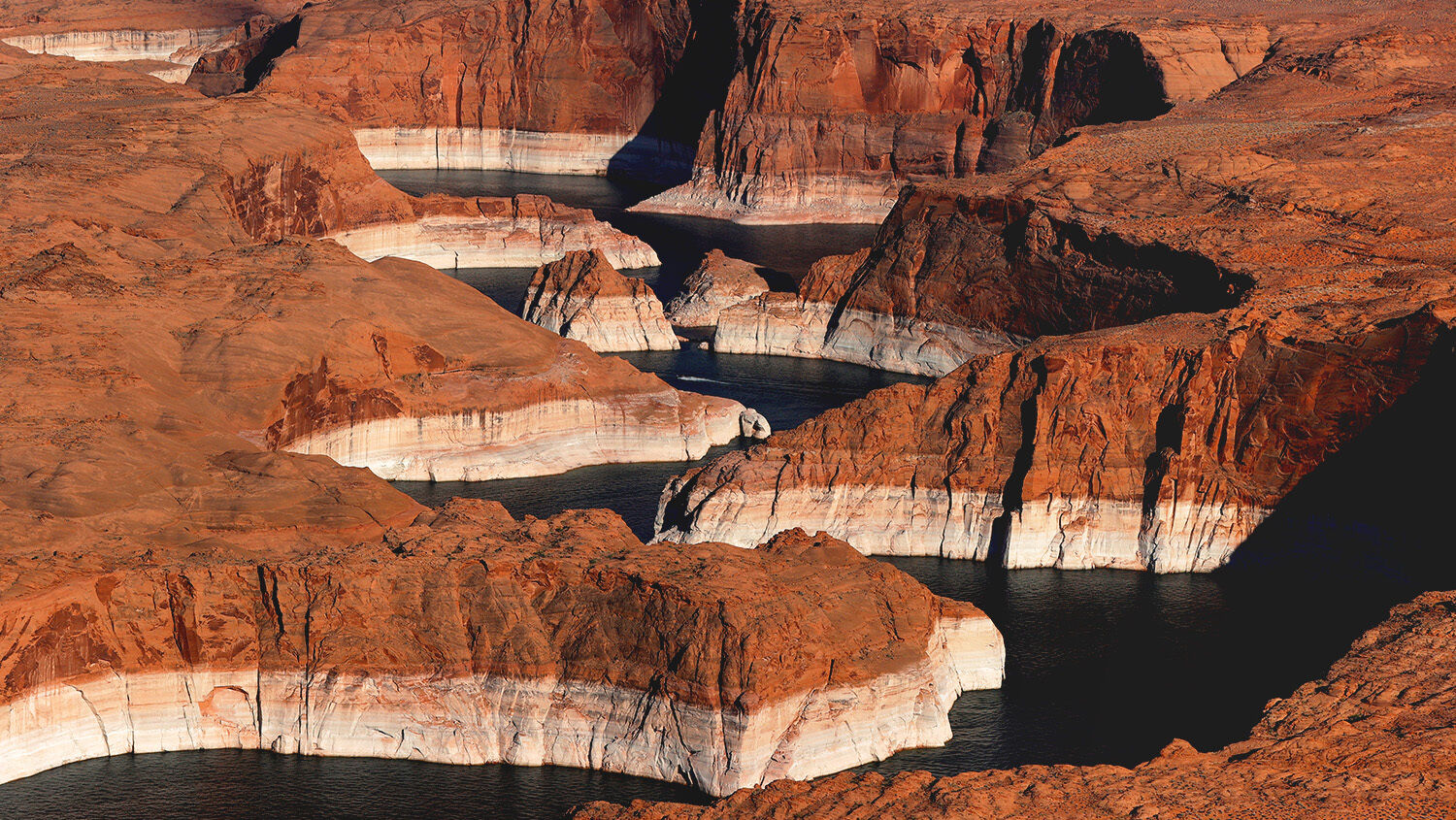
Historic Drought Strains U.S. Power Grid
The Western United States is suffering its worst drought since the fall of the Mayan civilization. According to new research, published in the journal Nature Climate Change, tree-ring reconstruction of summer soil moisture levels show that the last 22 years have been the driest the Western U.S. has experienced since a.d. 800. This means the Holy Roman Emperor Charlemagne was being crowned the last time it was this dry in California and surrounding states. So people are starting to suffer from the effects of a chronic lack of both snow and rain.
Lakes Mead and Powell are evaporating while the Colorado River and the Rio Grande run dry. Irrigation districts tell fruit and vegetable farmers to expect less water this year. Ranchers are preparing to reduce America’s cattle herd by about 100,000 head this year with the expectation that there will not be enough grass to go around. These measures will make fruit, vegetables and beef more expensive. But rising food prices may not be the only ill effect of America’s historic drought. Dropping water levels in lakes Mead and Powell could leave millions without power or paying a lot more for electricity as they scramble for oil and natural gas.
The Glen Canyon Dam at Lake Powell produces around 5 billion kilowatt-hours of hydroelectric power annually, while the Hoover Dam and Lake Mead produce around 4 billion kilowatt-hours. Together, they supply electric power to roughly 4 million people across Arizona, California, Colorado, Nebraska, Nevada, New Mexico, Utah and Wyoming. Yet water levels at Lake Powell have fallen 140 feet since 2000, while water levels at Lake Mead have fallen 146 feet in the same 22-year period. This means that both lakes are nearing a point where the Glen Canyon and Hoover Dams will no longer be able to function at peak efficiency.
The U.S. Bureau of Reclamation has warned that it is possible the Glen Canyon could stop functioning in the summertime if it doesn’t get sufficient snowmelt from the Rocky Mountains, and the odds of this actually happening increase the longer the megadrought continues. The Bureau of Reclamation is trying to prevent this by holding back some of the water it usually allows to flow down the Colorado River to Lake Mead, but this solution only exacerbates Lake Mead’s water problems to help Lake Powell’s water problems.
Many smaller dams across the U.S. face a similar lack of water, leading analysts to worry that the nation could suffer a hydroelectric power crisis in the next decade. Such a crisis would be serious: Hydroelectric power accounts for about 37 percent of total U.S. renewable electricity generation and about 7 percent of total U.S. electricity generation. Just as U.S. Energy Secretary Jennifer Granholm emphasizes that America needs to move away from oil and natural gas, the nation’s biggest source of renewable energy is drying up.
This devastating megadrought becomes even more significant when you realize what the late Herbert W. Armstrong explained about the biblical identity of Americans and Britons. In his landmark book The United States and Britain in Prophecy, Mr. Armstrong explained that America and Britain are descended from the ancient Israelite tribes of Manasseh and Ephraim. This means that end-time Bible prophecies about Manasseh and Ephraim apply directly to the modern-day inhabitants of the United States and the British Commonwealth.
In Leviticus 26, the Bible records the curses the Prophet Moses said would come upon Manasseh and Ephraim if they turned away from God’s law. Among these curses are crop failures and debilitating drought. “And I will break the pride of your power; and I will make your heaven as iron, and your earth as brass: And your strength shall be spent in vain: for your land shall not yield her increase, neither shall the trees of the land yield their fruits” (verses 19-20). These verses reveal a time when the sky will hold as much moisture as a sheet of iron, and the soil, as a plate of brass. That means drought and famine (Joel 1:10-16; Amos 4:7).
The fact that the Western U.S. is suffering its worst drought in 1,200 years should be a wake-up call!
Yet God also shows how to end droughts and natural disasters. In 2 Chronicles 7:13-14, He says: “If I shut up heaven that there be no rain, or if I command the locusts to devour the land, or if I send pestilence among my people; If my people, which are called by my name, shall humble themselves, and pray, and seek my face, and turn from their wicked ways; then will I hear from heaven, and will forgive their sin, and will heal their land.” We need to take note of what God says about repentance. If Americans do not “turn from their wicked ways,” the megadroughts God uses to get people’s attention will worsen.
For more information on the promise God makes in 2 Chronicles 7:13-14 and how it shows the solution to America’s problems, read “Is God Answering America’s Prayers?”, by Trumpet editor in chief Gerald Flurry.
